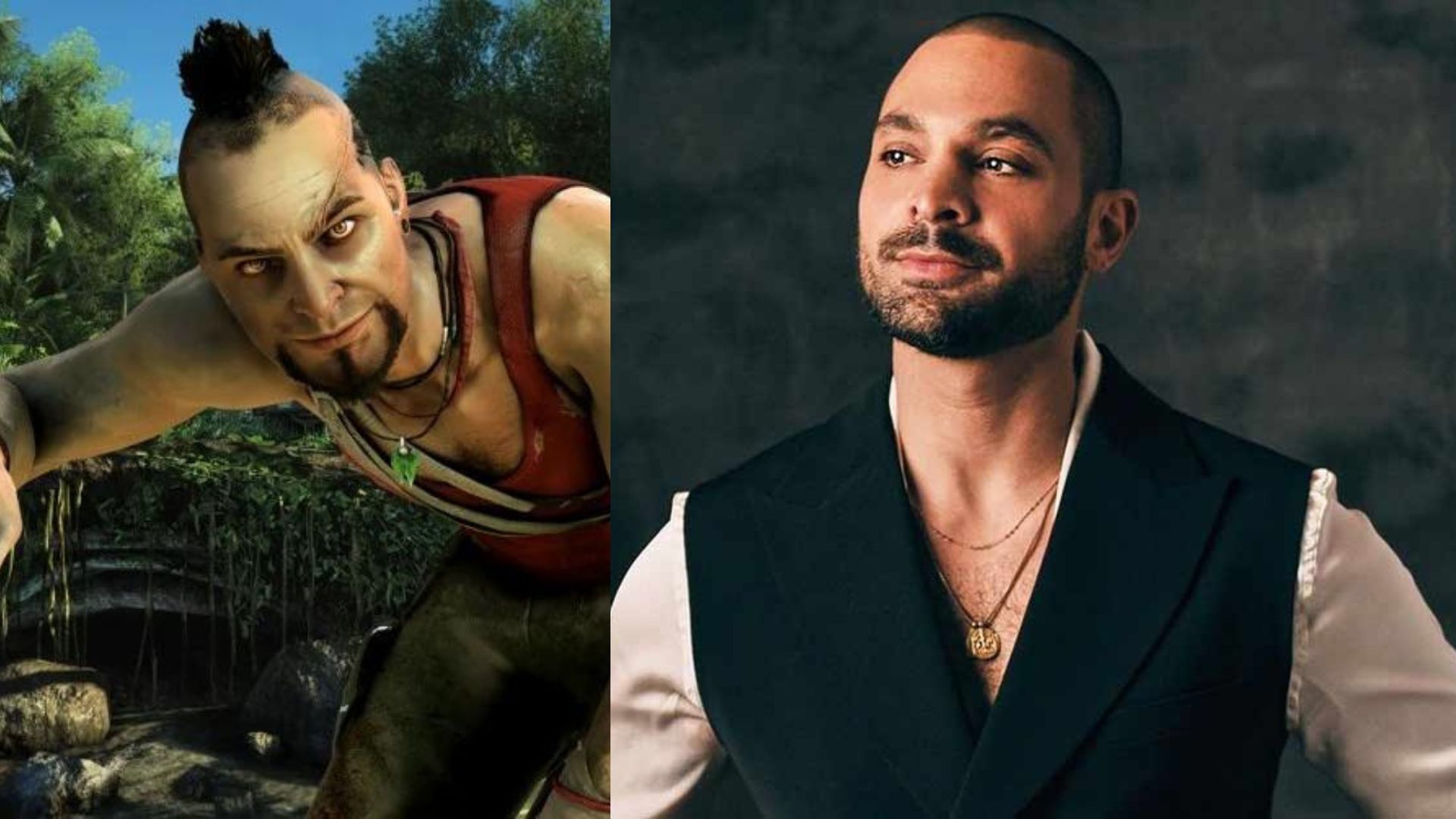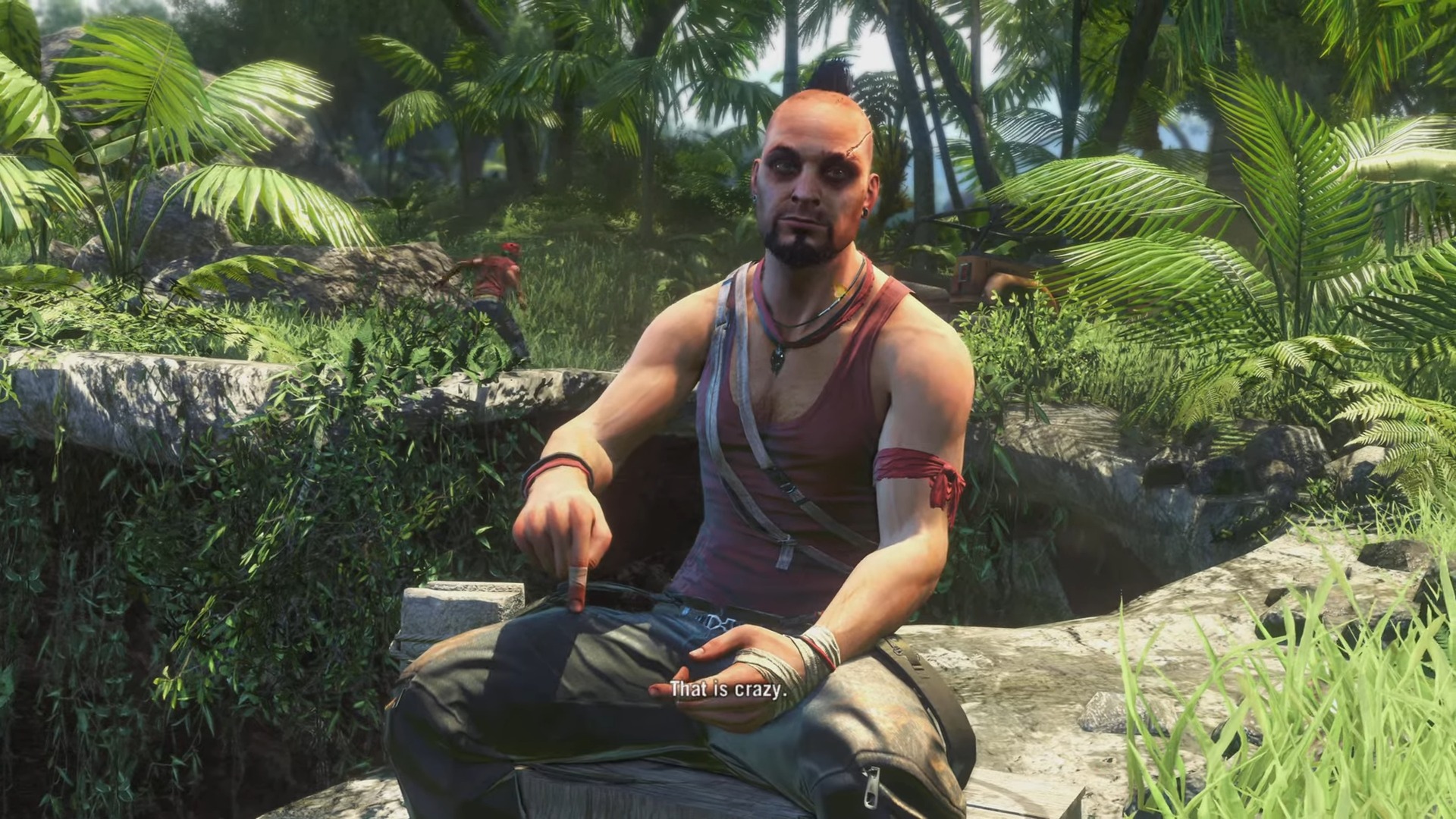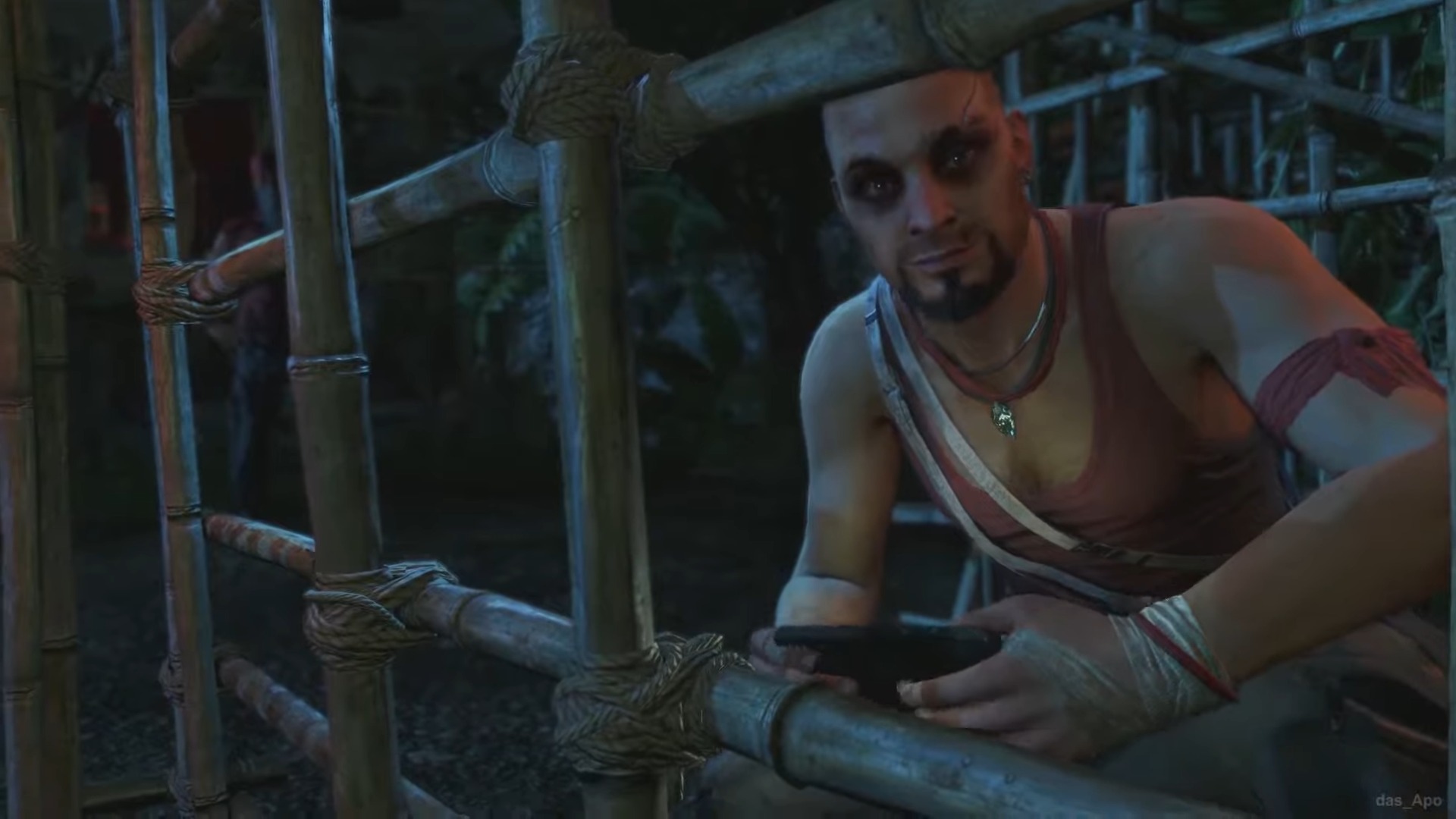The hero’s journey defines a good story, but it’s the villain who decides what is at stake. Without a good villain, our hero would not seem as impressive.
Ubisoft truly delivered on this with the creation of villains in the Far Cry series. Far Cry antagonists elevate the story, raising the stakes and pushing the protagonists to their limits.
This emphasis on villains is also reflected in Ubisoft’s marketing strategy. As many Far Cry game covers prominently feature the main villain. You could pick and talk about any villain from the series, but, today I want to focus on Vaas from Far Cry 3. Released in 2012, Far Cry 3 carved a bloody path into the hearts of gamers.
While the tropical open world and explosive action drew players in, the unhinged pirate villain, Vaas Montenegro, stole the show.
- Vaas Montenegro is the iconic main antagonist from the video game Far Cry 3.
- Actor Michael Mando’s phenomenal performance breathes life into Vaas, shaping his depth and unpredictability.
- The character transcends the typical villain, offering depth with philosophical ramblings alongside his volatile nature.
- Vaas’ limited screen time creates an aura of mystery, leaving players wanting more and fueling speculation.
- His impact transcends the game, solidifying him as a pop culture icon and a benchmark for video game villains.
Get The Perfect Actor
Michael Mando‘s portrayal of Vaas is a masterclass in villainous charisma. In my opinion, this has to be one of the best villain castings for any game.
However, it may come to players as a surprise that the character of Vaas came after Micheal Mando. Before the actor’s famous stint in Better Call Saul, Mando auditioned for Far Cry 3.

The audition script offered a foundation, but it was Mando’s performance that truly brought Vaas to life. The creative team at Ubisoft recognized Mando’s talent and worked collaboratively with him to refine the character. Originally the main villain for Far Cry 3 looked very different from Mando.
The Villain before Vaas was supposed to be this big imposing muscular figure, called the Bull. However, Mando’s character portrayal impressed the creative team so much, that they completely reworked the character to be more in line with Mando’s performance. The next step was to simply put Mando in a motion capture suit and let him do his thing.
Definition Of Insanity
Few video game monologues have resonated as deeply as Vaas Montenegro’s infamous “definition of insanity” speech. Debuted at E3, it sparked immediate fan attention and left audiences hungry for more of this captivating villain.

Vaas is a character perpetually on the razor’s edge. One moment, he’s calmly spouting philosophical ideas on insanity, the next, he’s erupting in a violent rage.
This unpredictability keeps players constantly on edge. You never quite know what to expect from Vaas, making every encounter with him a nerve-wracking experience.
But Vaas isn’t just a walking time bomb. He possesses a strange charisma that draws the player in despite his obvious ruthlessness. His philosophical ramblings, delivered with a chilling intensity, are oddly captivating. He repels us with his violence yet compels us with his twisted logic.
While Vaas is undeniably disturbed, he’s not simply a one-note villain defined solely by his insanity. His philosophical ramblings may seem nonsensical at first, but they delve into themes of free will, perception, and the nature of reality.
Vaas may be a villain, but his words force the player to confront uncomfortable truths.
Less Is Better
One of the most interesting things about Vaas’ character is the deliberate scarcity of his screen time. While many iconic villains dominate the screen time, Vaas appears for a surprisingly short duration.
Vaas only appears for less than 10 minutes from the total 15-hour campaign. By keeping Vaas’ appearances brief and impactful, the developers cultivate an air of mystery around him.

Most of his backstory and motivations stay shrouded in mystery. This lack of complete information fuels player speculation and intrigue. We’re constantly left wanting more, piecing together Vaas’ character from limited interactions and cryptic clues.
Limited screen time also allows Vaas to make a more significant impact whenever he does appear. His appearances become highly anticipated events, moments of heightened tension within the actual campaign.
Why Vaas Works
Vaas Montenegro’s brilliance lies in his ability to transcend the typical video game villain trope. He’s a complex and unsettling character who forces players to confront their sense of security. His unpredictable nature, chilling charisma, and philosophical monologues elevate him beyond a mere antagonist.
The impact of his limited screen time creates an aura of mystery, leaving players wanting more. Michael Mando’s exceptional performance breathes life into Vaas, capturing his volatility and captivating audiences. Vaas’ influence extends far beyond Far Cry 3, becoming a pop culture phenomenon and a benchmark for video game acting.
Good job! Please give your positive feedback 😏
How could we improve this post? Please Help us. 💡
I’m a Computer Science undergrad by day, and a gamer by… well, most of the rest of the time. Been around games forever, from the classics like CS 1.6 and Halo to the latest stuff like Valorant and Palworld. Competitive FPS is my jam, but you won’t catch me skipping a good campaign – Red Dead Redemption 2 and The Last of Us hold a special place in my heart. Outside of gaming, I’m a huge movie buff. Basically, I’m here to dissect the latest games, share some laughs about pop culture, and maybe even recommend a good film.



